Here are my snapshots of a wheat field in Sde Ilan, from planting through harvest (with Tavor in the background for perspective):
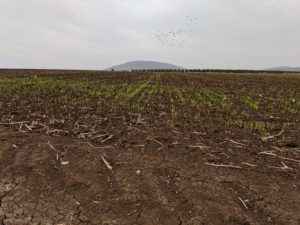
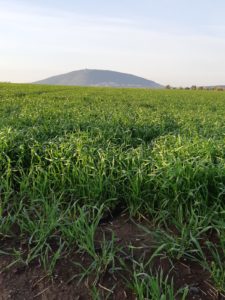
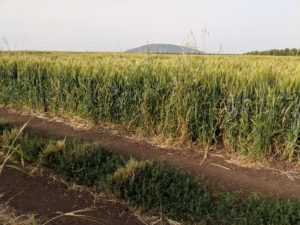
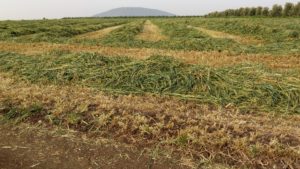
Such welcome predictability. Soon we’ll celebrate the harvest, as the Torah has mandated, on Hag HaKatzir (6 Sivan), marking the culmination of the age-old cycle that had started back in October.
Round and round, planting and harvesting, so predictable that we can set our religious calendars by this agricultural cycle of life and death. Our aesthetic sensibilities are gratified by neat fields of planted crops — it all might be tied to mollifying any deeply-rooted evolutionary anxieties left over from an age before supermarkets. We are naturally calmed when we see our food stores organized into anticipated yield. God created us with a compulsion to subdue the earth, and the order that we impose on her fulfills that very basic human need.
This is how we generally interact with our world: we’re built to make order, to divide continents into countries, to build fences to keep out predators, to make things neat and pretty and tidy and predictable and controlled. It’s good for the body and soul, utterly human.
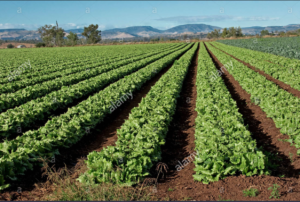
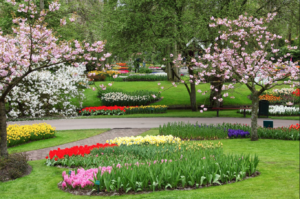
In the absence of human interference, though, life thrives in a different way. This second approach of Creation is far more threatening to humans, but it has an aesthetic that is equal to (if not surpassing) the neat rows of corn or carrots. It is the wild chaos of natural growth, as random and unpredictable as life truly can be. If we step back from interfering, from processing, scheming and manipulating, the earth will determinately push forth a riot of its own making, varieties of plants and flowers that compete against each other for survival.
It was a submission of to the wisdom of nature — that animals do best when they can eat freely from native and uncultivated vegetation, and we in turn will do best by them and by ourselves by allowing for that process — that led to a weird revolution of sorts that has our fellow moshavnikim scratching their heads. We decided to rejuvenate our field au naturel, a look that’s alarmingly wild and does indeed make me anxious:
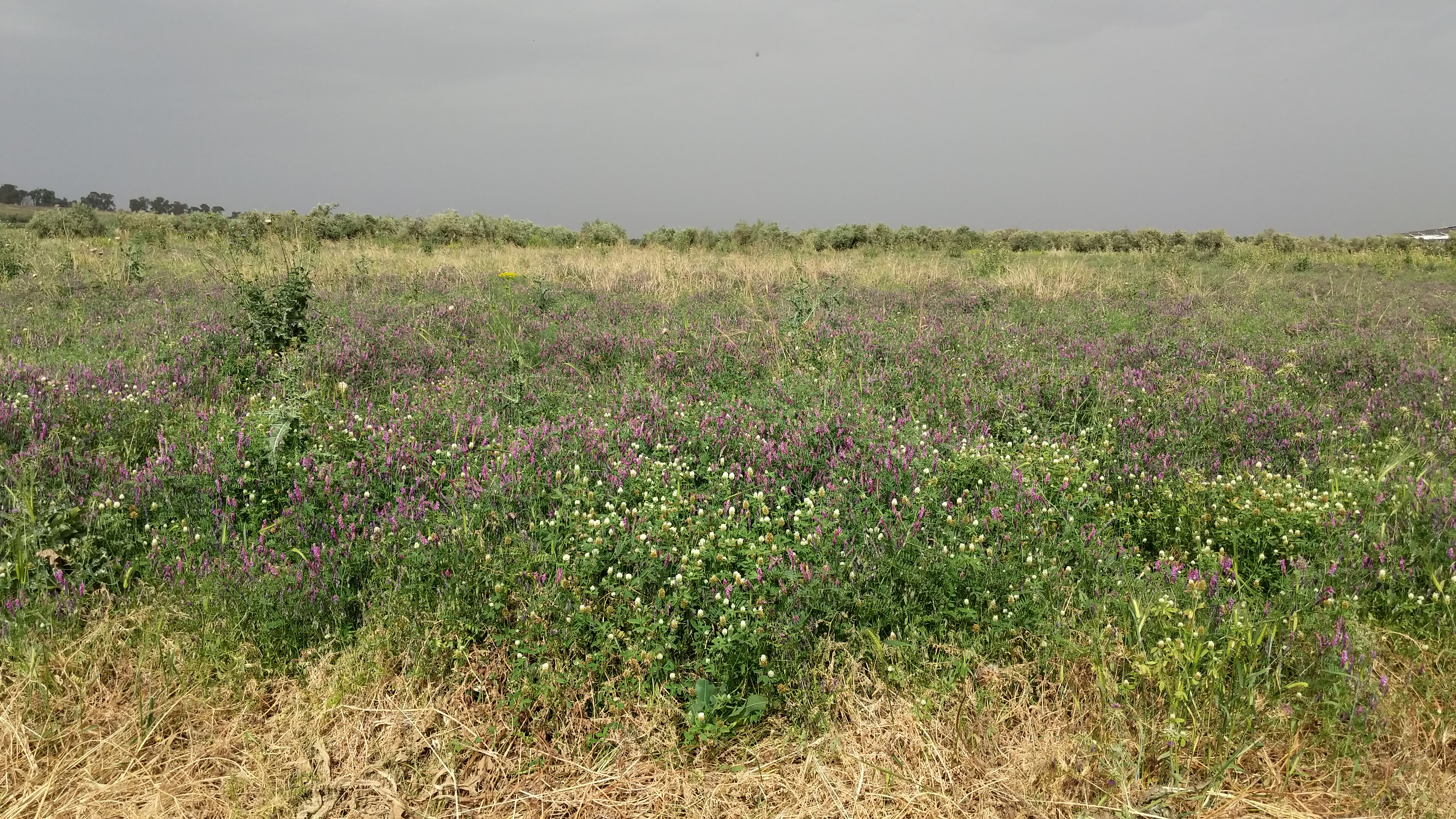
(Note: this wouldn’t work if we wanted to grow all of our food from the ground. The aquaponics system will hopefully handle the veg, and the fields will provide for our proteins.)
Exhausted from years of modern controlled monoculture farming, with regular crop dusting to keep out any insects and chemical fertilizers to mask the damage done to the soil by growing only one type of crop, our field seemed on the brink of burnout when we first moved in. But such is God’s commitment to this world: life insists on pushing forth, even if you don’t expect it to. We scattered random seeds of wild plants indigenous to this region with no tilling and no water, no chemicals or pesticides, and the plants triumphed. There’s clover, vetch and wild alfafa in them there pastures. This whole luxurious mess will all be mowed down in a few months to sink back into the ground as natural nutrient-filled mulch; the hope is that these perennials will reemerge on their own next year so that our livestock can graze on what the earth naturally provides.
Michael Pollan writes often about his garden, and the special corner he keeps “in chaos.” While a garden is a thing of beauty, both aesthetic and functional, so is his unkempt corner — and not just because it serves to throw the straight rows of his peonies into triumphant relief. There is beauty in the randomness, where a lone red poppy might shoot up among the weeds, unexpected and entirely unpredictable, capricious and therefore stunning.
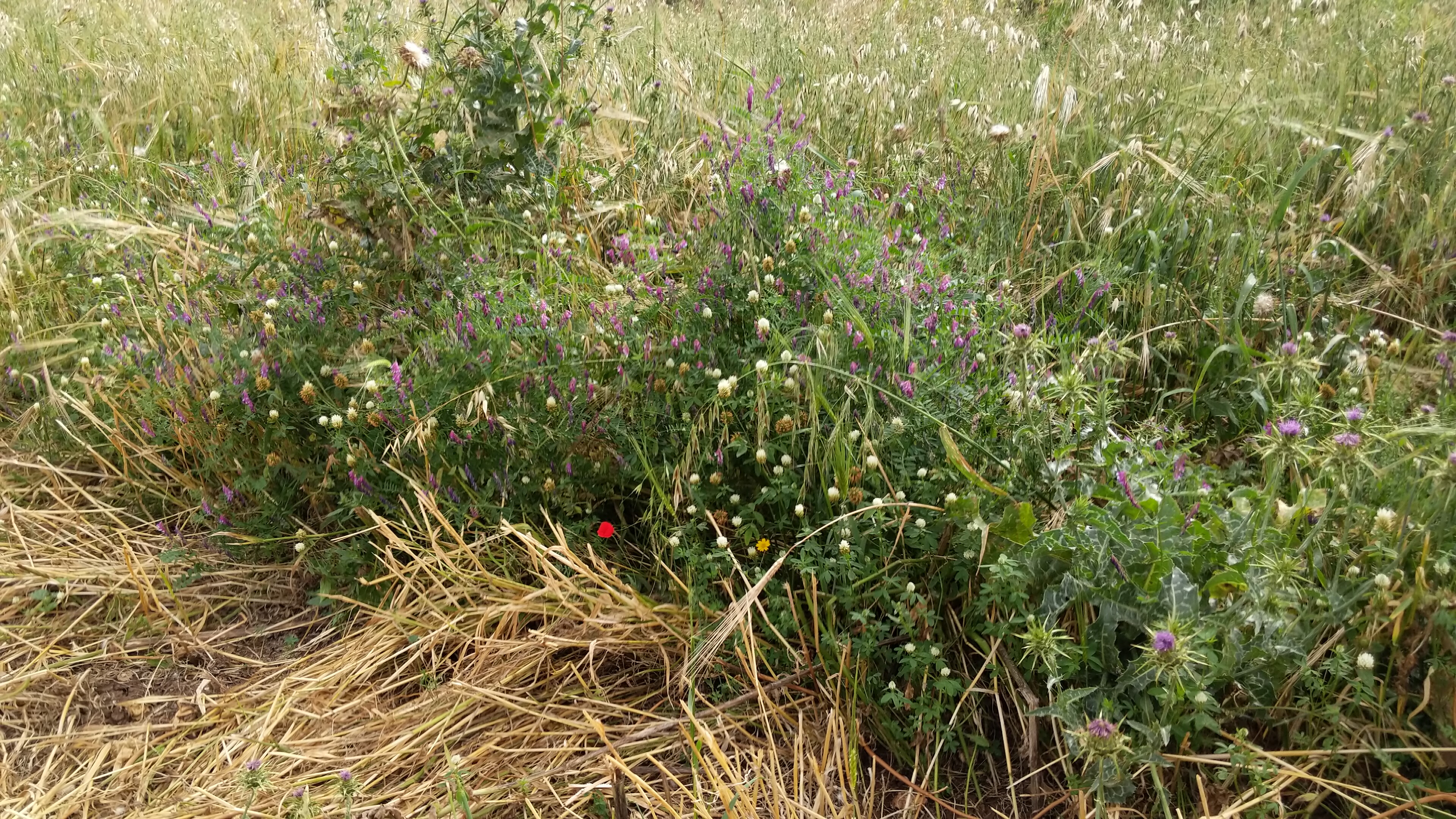
Moving to a totally new context — like making aliyah, or going fully rural like we have — can have you working overtime to retain control and stick to the plan. It is the human way, after all, to try and manage our lives, and to control things, as if life was a machine that I could program and determine the outcome. But if you surrender to the inevitability of randomness in our world, remaining steadfast and true only to yourself, understanding that the one and only thing you can ever control is your own response to the sock-pow (and quieter) surprises that are an inevitable part of life, then you start to see the great beauty in that very randomness that scares us all.
Don’t get me wrong — I love those neat and tidy fields, and I always will — but I also am beginning to understand the importance of letting life just be. It is an awesome and inspiring beauty, life left unfettered and free to express itself. What emerges from that randomness are these surprising opportunities that we could never have even imagined, pushing themselves determinedly into our lives like that random poppy in the spread of wild growth.
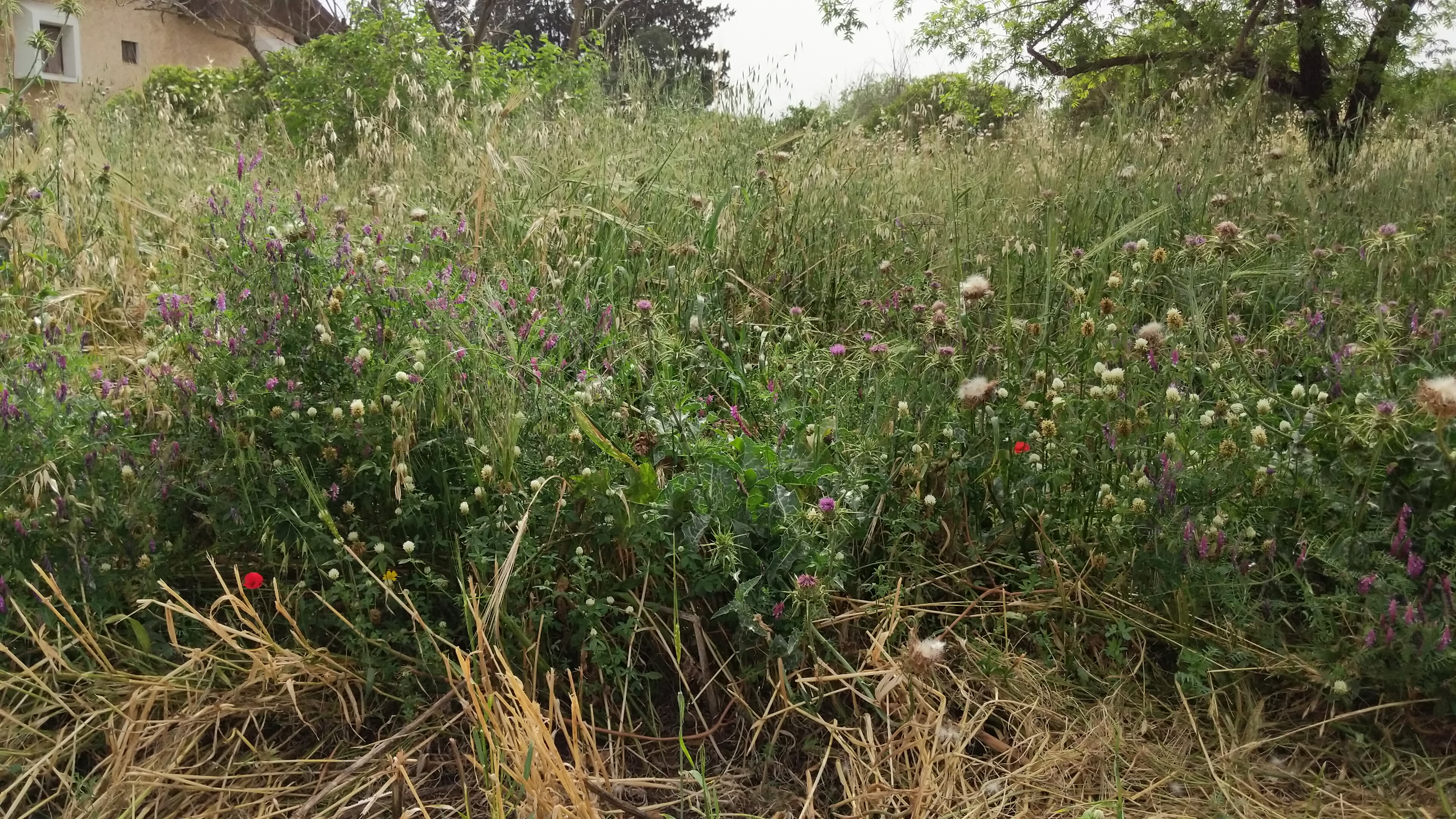
So many of us glide back and forth in life between our need to dominate the earth, and our willingness to submit to its mysteries and surprisingly unexpected gifts. Right now, in our lives, our family is deeply living both of these approaches, as they play out before us in the landscape that we’re privileged to call home.
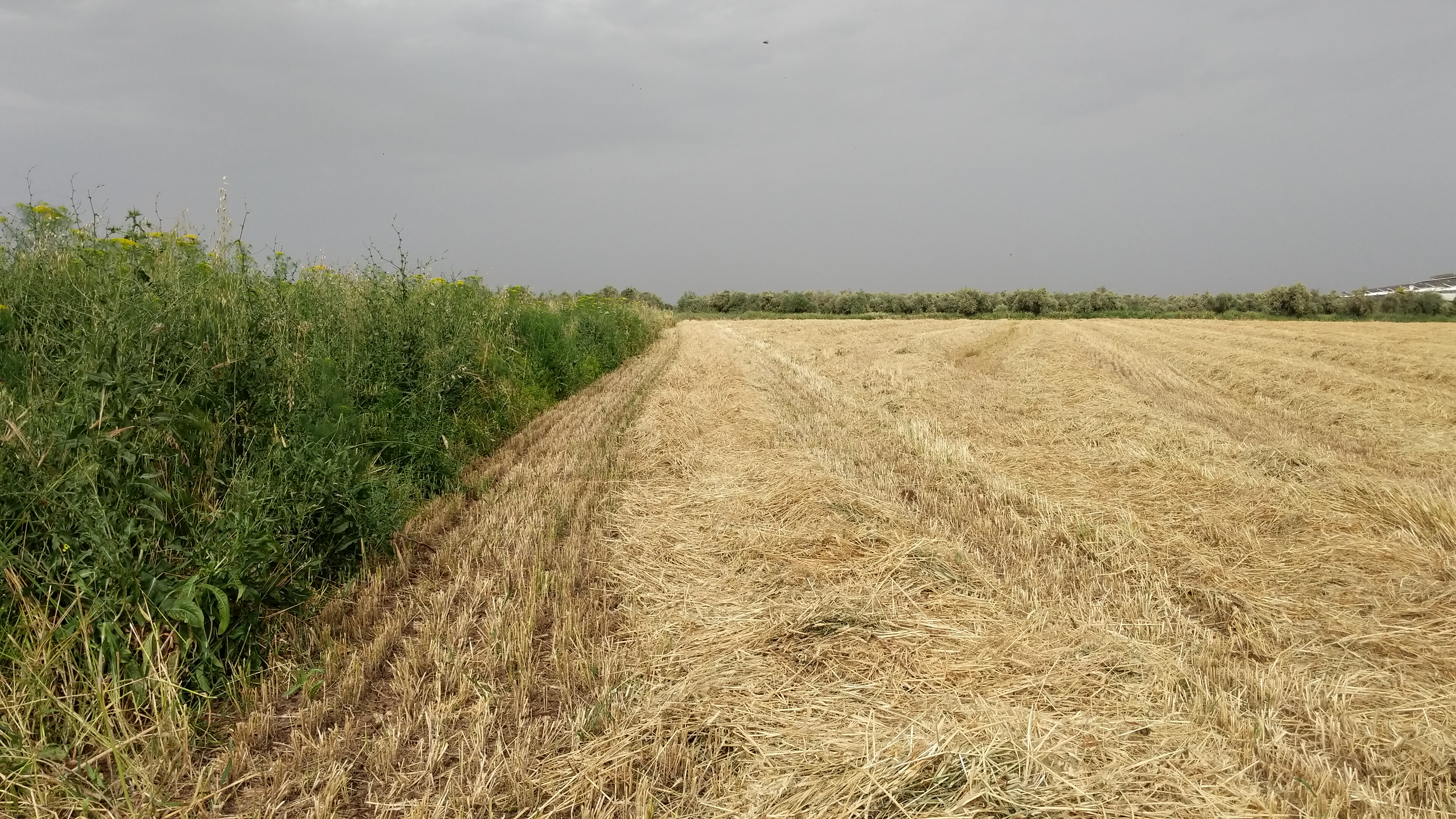
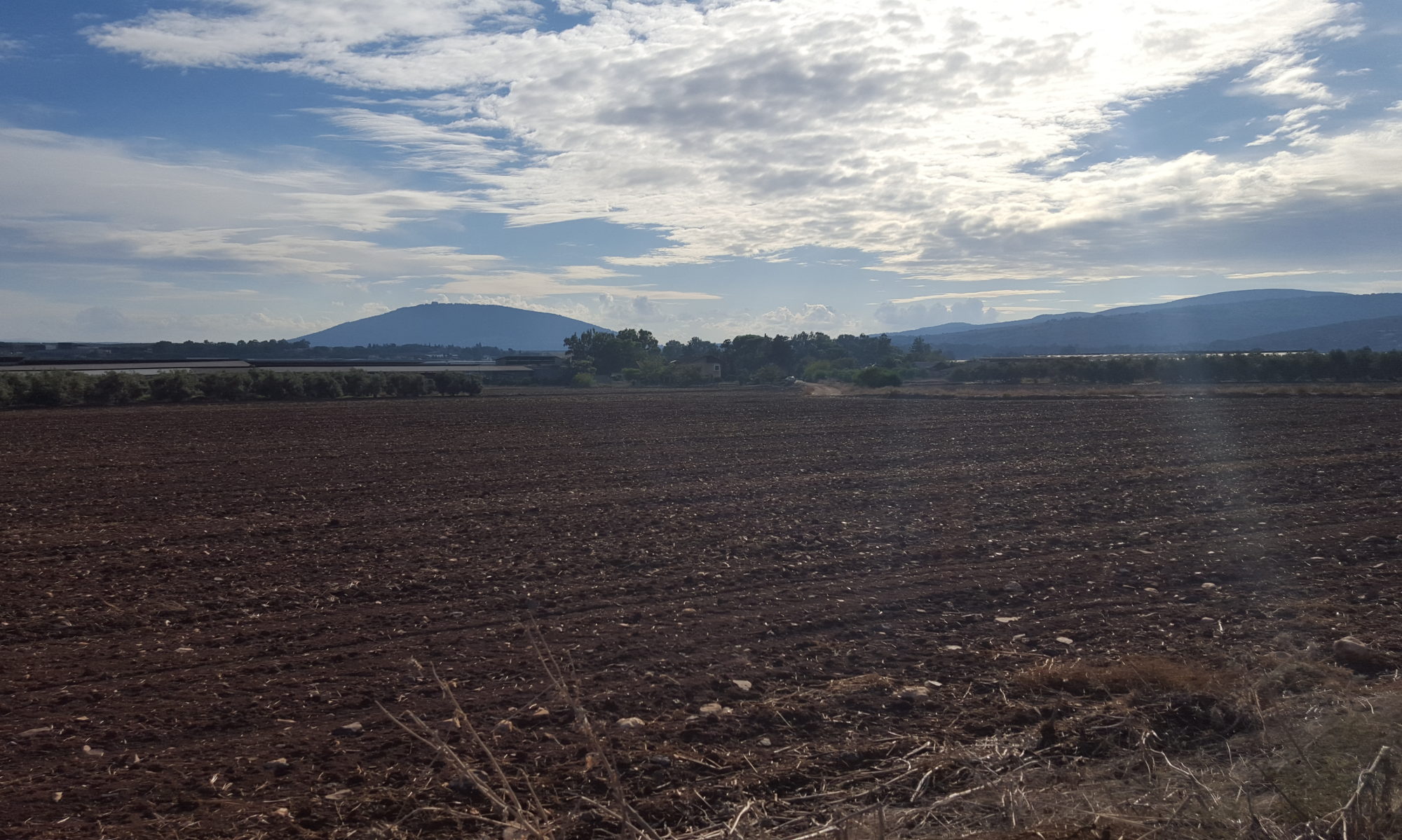
Beautifully expressed. Here’s praying that your message will be heard, internalized and adopted by many. Each of us, in our own way can contribute to renourishing the earth.
So beautifully said. I am blown away.